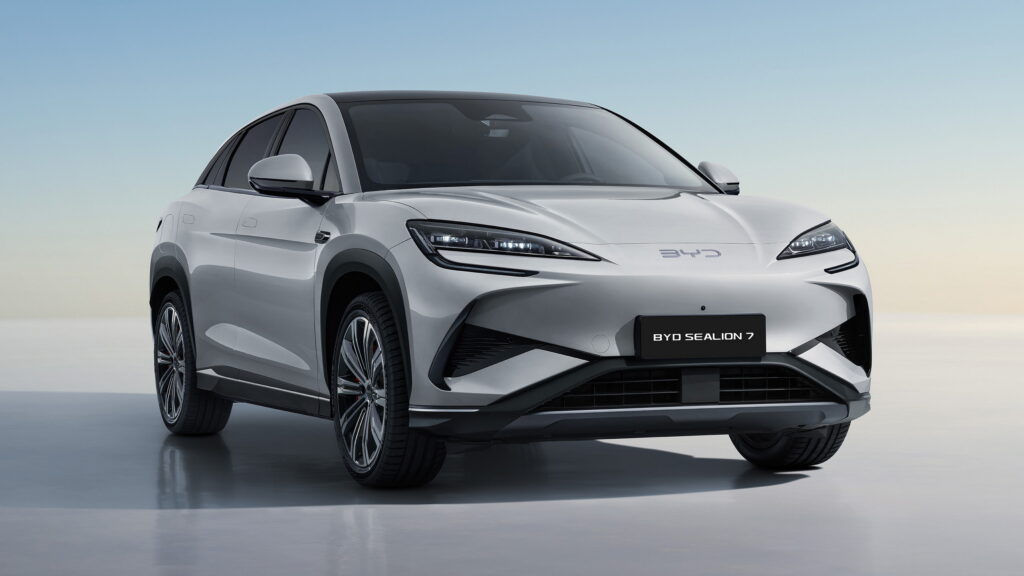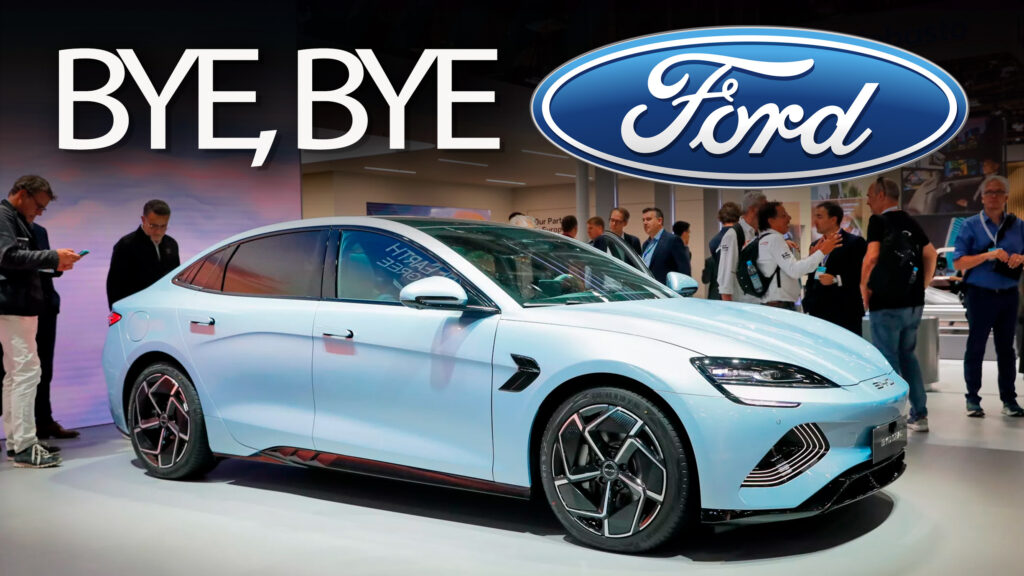- There’s a chance the Chinese giant could sell 4 million vehicles this year.
- BYD was just 10,000 units shy of topping Stellantis and being the fifth-largest automaker in the world.
- Sales of China’s other two big car companies also rose during the July-September period.
BYD was the sixth-largest automaker in the third quarter of this year, selling more new vehicles than Ford for the first time in its history. It may even end the year having sold over 4 million vehicles and could overtake Ford for the entire 2024.
During the July-September period, BYD sold 1.13 million vehicles, representing a 38% increase from the same period last year and making it the most successful quarter ever for the brand. Ford sold approximately 40,000 fewer vehicles over the same period, slipping from the sixth-largest car manufacturer to seventh. Ford was holding on to a narrow lead for the January-September period, having delivered 3.3 million vehicles globally, slightly ahead of the 3.25 billion shipped by BYD.
Read: Leaked BYD Email Pressures Suppliers To Slash Costs For 2025 EV Price Wars
BYD is not the only Chinese company giving traditional legacy automakers something to worry about. Sales at Geely jumped 14% through the third quarter after it delivered 820,000 vehicles. That placed it ahead of Nissan and behind Honda in ninth position. China’s third-largest car manufacturer, Chery, also rose to 12th in the ranking, reporting a 27% rise in sales to 550,000 units.
As Nikkei Asia reports, sales of many brands from Japan, Europe, and the US fell last quarter. For example, Toyota’s sales dropped 4% to 2.73 million, although it still holds a commanding lead over the VW Group which reported a 7% decline in sales to 2.17 million vehicles. Hyundai Motor Group retained its position in third, but its sales also fell, down 3% to 1.77 million units. Things were even worse at Stellantis as its sales plummeted by 20% to 1.14 million.
A surge in sales for brands like BYD is boosting their financials, too. During the third quarter, the carmaker posted revenues of 201 billion yuan, the equivalent of $27.6 billion, higher than Tesla at $25.2 billion.




